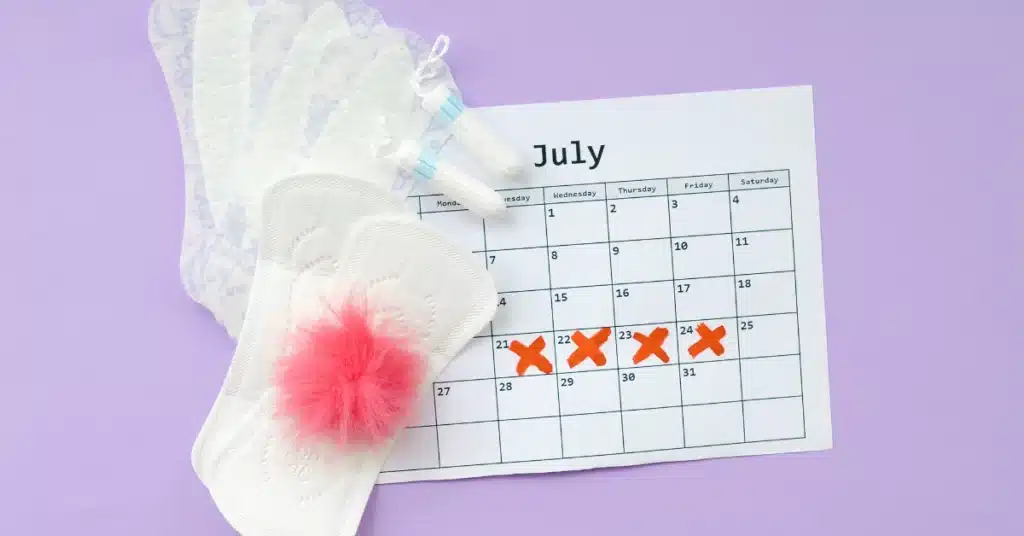Side Effects of Stopping Birth Control: Acknowledging the Changes
Over 100 million women worldwide use birth control.
While birth control is an effective way to prevent pregnancy, it can also have side effects when one stops taking it.
When a person stops taking birth control, their body goes through a transition period.
Their hormone levels change, which can cause various side effects.
The side effects may depend on the type of birth control they were taking and how long they were taking it.
This article discusses a few of the side effects of stopping birth control and how to manage the side effects of stopping birth control.
Potential side effects of stopping birth control
Stopping birth control can cause various side effects.
A few of the common side effects of stopping birth control have been discussed below:
Irregular periods

Period irregularities are one of the most prevalent side effects of stopping birth control.
The menstrual cycle may become erratic, with heavier or lighter periods than usual.
Birth control regulates the menstrual cycle; the body requires time to adjust when someone stops using it.
The menstrual cycle and fertility may take up to nine months to return to normal.
Monitoring symptoms and seeking medical advice if any irregularities persist is important.
Acne
Some people may take hormonal birth control to reduce acne.
Therefore, a person may get breakouts after they stop taking birth control because it helps minimize acne.
This is because birth control controls hormone levels, and when they stop taking it, these levels may change and produce acne.

Treat your acne caused by birth control or anything else effectively.
Try these products from WowRx:
Demelan Cream 20gmSalicylix SF 12 Ointment 50 gmAcnesol Gel 1% (20gm)Weight changes
Birth control can have an impact on weight, and when someone stops using it, they may see weight fluctuations.
Their weight may increase or decrease depending on how their body reacts to the shift in hormone levels.
There is ongoing debate regarding the connection between birth control and weight increase, as clinical research has shown inconsistent results.
However, hormonal contraceptives may cause weight gain if they cause fluid retention and an increase in body fat.
Change in Fertility
Once birth control is discontinued, an individual’s fertility will alter and return to how it was before using it.
Pregnancy is possible immediately after discontinuing contraception, which can also result in unplanned pregnancies.
If a person wants to plan for pregnancy, it’s a good idea to talk to a doctor before stopping birth control.
However, the body may require some time to resume ovulating.
It is critical to employ an alternative method of contraception to prevent pregnancy.
How to manage the side effects of stopping birth control

Managing the side effects of stopping birth control can be done through several strategies:
- Giving the body time to adjust: The body needs time to adjust to the change in hormone levels. The menstrual cycle may take a few months to become regular again
- Talking to a doctor: If someone is experiencing severe side effects, they should talk to their doctor. They may recommend a different type of birth control or suggest ways to manage the side effects
- Maintaining a healthy lifestyle: People stopping birth control should eat a balanced diet, exercise regularly, and get enough sleep, similar to managing PMS symptoms
- Monitoring symptoms: Keeping track of when a menstruation cycle starts and ends, as well as the intensity of mood swings, acne, or cramping, is important for any woman in the menstruating age
- Using alternative contraception: If someone doesn’t want to get pregnant, they should consider using alternative methods of contraception, such as condoms or IUDs
- Considering hormone therapy: In some cases, a doctor may recommend hormone therapy to help manage side effects like acne
The side effects of stopping birth control are usually temporary and will disappear over time.
However, if any adverse effects do not seem to resolve, an individual should consult a healthcare professional for further guidance.
Conclusion
The stopping of birth control triggers a transition period marked by hormonal fluctuations, leading to various physical changes.
Common side effects include irregular periods, acne resurgence, weight fluctuations, and a return of fertility.
The duration for the menstrual cycle and fertility to normalize can span up to nine months.
Managing these side effects involves patience, lifestyle adjustments, and consulting a healthcare professional if severe symptoms persist.
Some other strategies include allowing the body time to adapt, using alternative contraception methods, and considering hormone therapy in specific cases.
While the side effects are generally temporary, seeking medical advice is crucial if issues persist.
Frequently Asked Questions
What are the side effects of going off birth control?
Common side effects of discontinuing birth control include irregular menstrual cycles, acne, mood changes, breast alterations, weight fluctuations, changes in libido, headaches, vaginal discharge variations, hair changes, and occasional hot flashes. However, individual experiences may vary, and these effects are often temporary.
How long does birth control stay in your system after stopping?
The time it takes for birth control to leave your system varies. Generally, it may take a few days to a few weeks for hormonal contraceptives to clear. However, individual factors, such as the type of birth control and your body’s metabolism, can influence the duration.
How long does it take for your period to regulate after stopping birth control?
The time it takes for menstrual cycles to regulate after stopping birth control varies. Some women experience regular periods within a few weeks, while others may take several months. Consult a healthcare provider for individualized advice depending on your health history and method of contraception.
Can stopping birth control affect fertility?
Stopping birth control does not affect fertility in the long term; fertility generally returns once hormonal balance normalizes. However, it may take some time for menstrual cycles to regulate. Individuals trying to conceive should be patient, as fertility can vary, and it’s advisable to consult a doctor for personalized guidance.
WowRx uses only high-quality sources while writing our articles. Please read our content information policy to know more about how we keep our content reliable and trustworthy.






